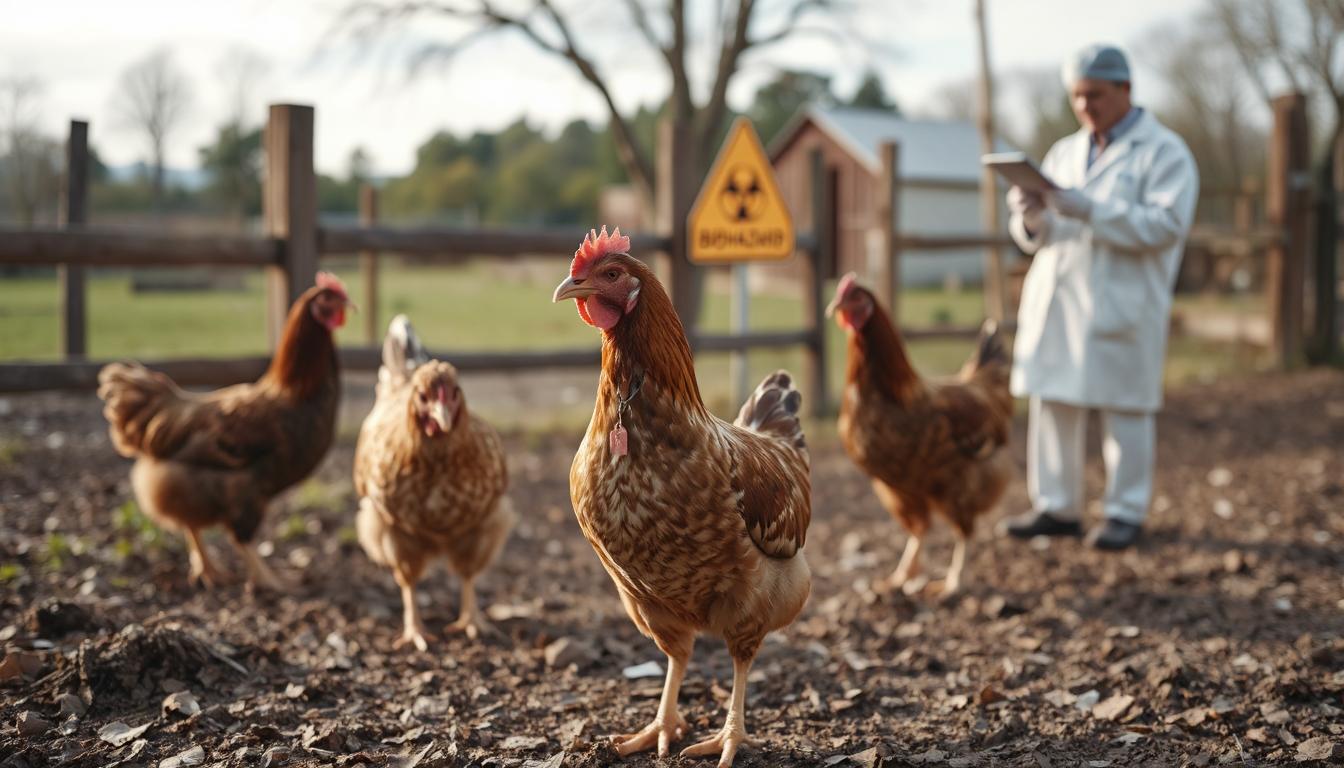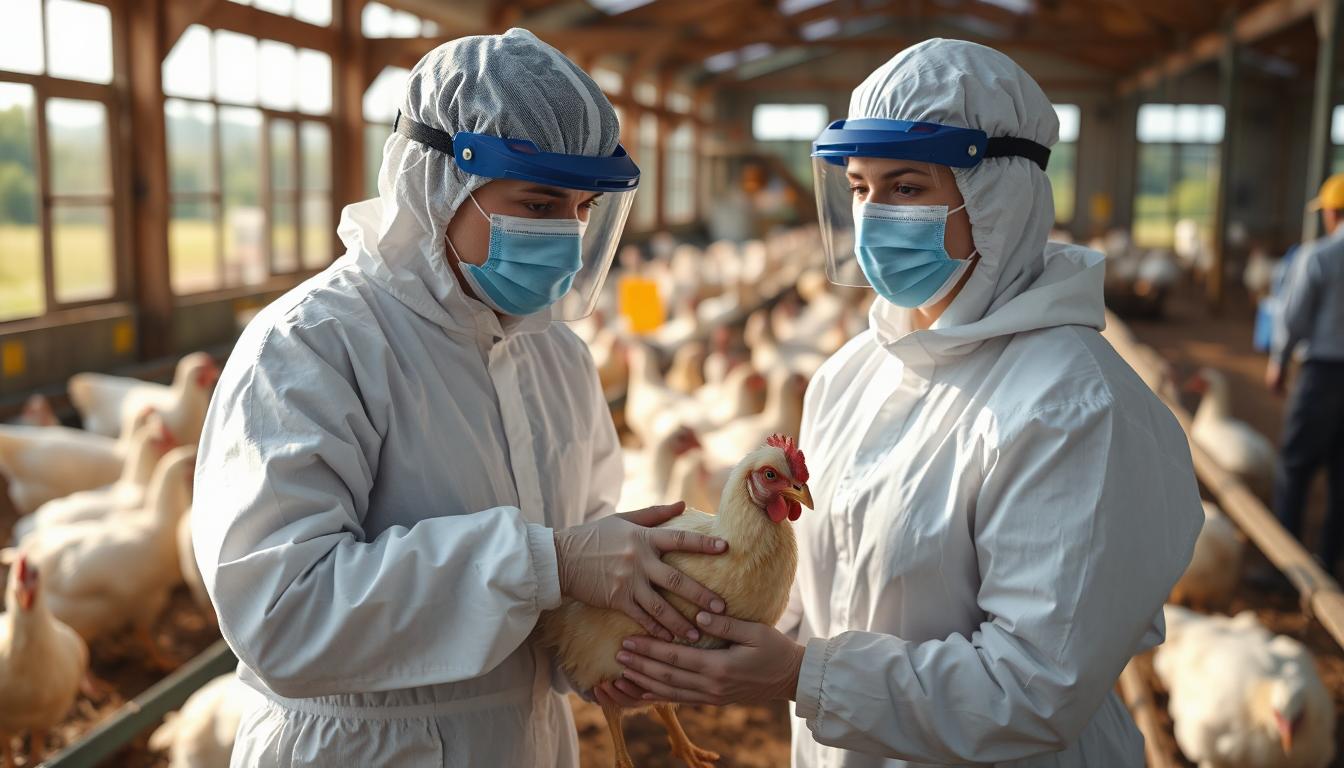Bird Flu
 Raina
|
Raina
|
 23 Jul 2025
23 Jul 2025
What Is Bird Flu and Why Are People Worried About It
Bird flu, or avian influenza, is a virus that mostly spreads between birds, especially chickens, ducks, and other poultry. Normally, it stays in birds—but every now and then, it jumps to people. That’s when things get worrying. When humans catch it, the illness can be more serious than regular flu and sometimes deadly.
It's not very common in people, but when it does happen, it hits hard. Some strains of bird flu have high death rates. Places like bird flu China have seen this before, and now with cases popping up in the US like bird flu California and bird flu Florida, it’s back in the news again. People are worried not just about getting sick—but what happens if the virus changes and starts spreading easily from one person to another.
How the Virus Spreads and Who It Affects
Bird flu spreads mostly through bird droppings, feathers, and saliva. The virus sticks to surfaces and can survive for hours or even longer. If a person touches something contaminated and then touches their mouth, nose, or eyes—that’s enough to get infected.
Cooked chicken or eggs don’t spread bird flu. Heat kills the virus. But being near sick birds or live bird markets, especially without wearing protection, raises the risk a lot.
It’s not just humans at risk either. People have been asking: can dogs get bird flu? Yes, but it’s rare. Still, bird flu in dogs has been seen in some cases. Dogs that sniff or eat infected birds can catch it. Bird flu symptoms in dogs might include cough, fever, or breathing problems. Cats can get it too. Cat bird flu has been reported, especially in Europe where cats came into contact with infected birds.
Common Symptoms to Look Out for in People
Symptoms usually start like any flu—fever, sore throat, cough, chills, and body aches. The problem is bird flu can turn bad fast. It might cause pneumonia, chest pain, or difficulty breathing within a few days.
Some people don’t show symptoms right away, or not at all. That’s part of the danger. You might not even know you’re sick until it gets worse. If you’ve been around poultry or in a bird flu area like bird flu NYC, it’s smart to watch out for flu-like symptoms and get checked early.
How Bird Flu Affects the Poultry Industry
When bird flu hits a farm, it spreads fast and kills fast. Sometimes birds die before showing signs. To stop it from jumping to more farms—or to people—entire flocks are destroyed. That means farmers lose everything overnight.
This causes shortages. Chicken and eggs disappear from shelves, and prices go up. We saw this in bird flu Florida and bird flu California, and now parts of the Northeast like bird flu NYC are feeling the same. It’s a big loss for farmers and a problem for food supply.
The virus doesn’t just damage health—it crushes businesses, raises food prices, and affects trade too.
Different Types or Strains of the Virus
There isn’t just one bird flu. There are lots of types. Some are weak, others are deadly. The ones you hear about in the news are usually H5N1 or H7N9. Those are the dangerous ones.
H5N1 is the one that first scared the world in the early 2000s. It's still around. H7N9 came later, mostly in China, and caused many deaths. Not every strain jumps to humans, but when they do, they’re bad news.
As for pets, we don’t hear about strain names often, but bird flu in dogs and cats usually comes from contact with infected birds. Still rare, but being seen more.
How Outbreaks Are Handled When They Happen
When a case is found, local health and farm officials act fast. They usually shut down the farm, test all nearby flocks, and cull the infected birds. It’s sad, but necessary to stop it from spreading.
People who had close contact with birds are watched closely. Some get antiviral meds, even if they don’t feel sick yet. States like California, Florida, and New York City all have their own health alerts when bird flu cases are confirmed.
Sanford Pharmacy often helps during these times, providing masks, gloves, hand sanitizers, and up-to-date safety info.
Can You Protect Yourself From Bird Flu?
Yes, you can. If you work with poultry, wear gloves, use a face mask, and wash hands after any contact. Don’t touch your eyes or mouth when handling birds or bird cages.
Avoid live bird markets. If you’re near one, wear protection. For regular folks, the most important thing is to cook meat and eggs fully. High heat kills the virus.
If you have pets, especially in rural areas, don’t let them mess around with dead birds. While bird flu in dogs or cats is rare, it’s still better to be safe.
Is There a Vaccine or Treatment Available?
Is there a bird flu vaccine? Not one for the public just yet. Some are being developed and kept for emergency use or for lab workers, but there’s no official vaccine for you to get at the pharmacy.
Treatment exists though. If you catch bird flu early, antivirals like oseltamivir (Tamiflu) can help. It won’t cure you instantly, but it can ease the illness and may prevent complications. The key is starting treatment early—within a couple days of symptoms.
Until vaccines become widely available, staying careful is your best defense.
What Makes Experts Nervous About Bird Flu
The worry isn’t just today’s outbreaks. It’s the future. If bird flu ever mutates and gains the ability to spread easily between people, that’s when it could cause a global crisis.
Flu viruses can mix inside a host. If someone gets bird flu and seasonal flu at the same time, the two viruses can trade genes. If that happens and it creates a strain that spreads like regular flu—but keeps the deadliness of bird flu—we’ve got a big problem.
It hasn’t happened yet, but scientists are watching closely. That’s why reports like bird flu in dogs or cat bird flu matter. More species getting infected means more chances for mutation.
Staying Informed Without Panicking
Being aware is smart. Being scared of every news alert? That’s not helpful. Keep up with trusted sources like CDC and WHO, not random headlines on social media.
If you work with poultry or live near farms, follow safety rules. Don’t ignore flu-like symptoms—especially after bird contact. If your dog or cat starts coughing or seems unwell after being outside near dead birds, talk to a vet. Bird flu symptoms in dogs are rare, but catching it early helps.
Sanford Pharmacy is here to help with protective gear, updated info, and support if bird flu ever affects your area. Stay calm, stay safe, and don’t let fear take over smart action.
Categories

How Long Does It Take for Allegra to Work?
 Desirae
Desirae
.png)
How Long Does Amoxicillin Take to Work?
 Meaghan
Meaghan

How to Use Clindamycin Phosphate Gel?
 Curtis
Curtis

How Long Modafinil Stays in Your System?
 Karsyn
Karsyn

How Long Does Pepcid Take to Work?
 Earl
Earl











.webp)
.webp)
-(2).webp)

.webp)